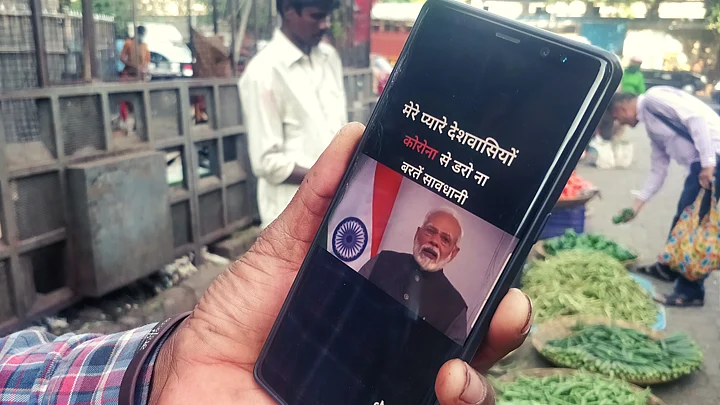An international survey conducted by CVoter and Gallup across 21 countries revealed that people in India were the most satisfied with their government’s handling of the novel coronavirus pandemic, compared to their counterparts in most of the other countries surveyed.
On being asked about their view on the statement, “I think the government is handling the coronavirus crisis well”, 58 percent Indians said that they “strongly agree”, 26 percent said that they “agree”, 5 percent “disagreed” and 9 percent “strongly disagreed.”
India had the highest proportion of people who “strongly agreed” but in terms of net agreement – that is “strongly agree” plus “agree” – the Centre-Right government of Sebastian Kurz in Austria was at 88 percent, a bit higher than the Narendra Modi-led government at 84 percent.
However, there are significant demographic variations, within India, regarding the satisfaction with Modi government’s handling of the coronavirus pandemic.
Religion & Caste
The highest support for the Modi government comes from Upper Caste Hindus, with 71.4 percent “strongly agreeing” that the BJP government at the Centre has handled the COVID-19 crisis well.
Among OBCs, this was slightly lower at 60 percent and among Dalits and Adivasis at 52.2 percent and 52.9 percent respectively. In all these categories, the net agreement was still high.
On the other hand, the proportion of those who “strongly disagreed” was highest among Sikhs, at 21.4 percent, followed by Muslims at 15.8 percent. Net disagreement was also highest among these two sections.
Age Group
The other interesting metric with a great deal of variation is age. Satisfaction with the Modi government’s handling of the coronavirus crisis increases as one moves from younger to older respondents.
Some 68 percent of the respondents above 60 years of age “strongly agreed” that the government is handling the crisis well, compared to 66.2 percent in the 45-60 years age group, 56.4 in the 25-45 years age group and 49.5 among those below 25 years of age.
Conversely, the proportion of those who “strongly disagreed” that the government is doing a good job was highest (16 percent) among those below 25 years, 8.5 percent in the 25-45 years age group, 4.8 percent among those between 45 and 60 years and just 2.9 percent in the 60 plus category.
Gender
In terms of gender, women tended to view the Modi government’s performance more favourably than men – 60.7 percent women “strongly agreed” that the government is doing a good job compared to 55.9 percent among men.
However, women (10.4 percent ) were more likely to strongly disagree than men (7.2 percent).
Income
According to the survey, middle and higher income groups had a more positive view of the government compared to lower income groups.
About 62 percent of those in the higher income group and 60.1 percent in the middle income category said they “strongly agreed” that the government is handling the Corona crisis well, compared to 55.8 percent in the lower income group.
On the other hand, those in the lower income category were twice as likely to “strongly disagree” with the statement compared to the other two groups.
What Does This Tell Us?
Actually, the survey tells us more about Prime Minister Modi’s popularity than about the coronavirus’ perceived impact across various demographic categories.
The high approval for the government among Upper Caste Hindus or higher income groups on the coronavirus crisis, and the comparatively lower approval among Sikhs, Muslims and lower income respondents is not surprising as it is line with Modi’s popularity or lack of it among these categories.
The age aspect is a bit surprising though. Usually, support for Modi is higher among the young and comparatively lower among the elderly.
Perhaps this could be because of differing expectations regarding public health across different age groups.
This may explain the country-wise variation as well. The higher degree of satisfaction with the government in India and much lower approval rating in countries like the United States and United Kingdom may stem from the fact that people in the West may have much higher expectations from the government on matters of public health, compared to people in India.
